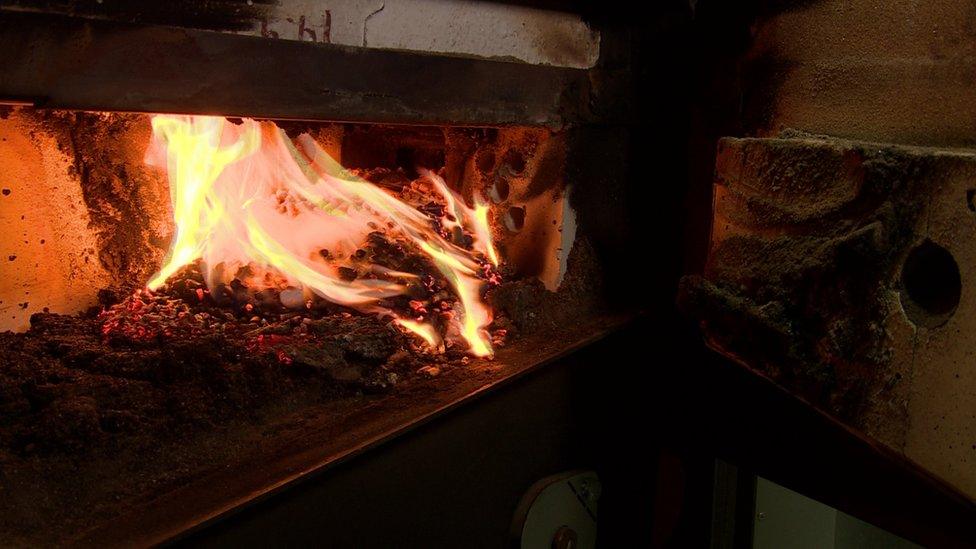RHI Inquiry: Warning letters sent to criticised parties
- Published

The RHI scheme offered financial incentives for businesses to use renewable fuels to generate heat
The Renewable Heat Incentive Inquiry has started sending out "warning letters" to people who may face criticism in its final report.
They have been given a number of weeks to respond to the letters.
It means there is unlikely to be a final version of the inquiry report ready before late summer.
An inquiry spokesman said its work was continuing and "no date had yet been set" for the publication of the report by the chairman, Sir Patrick Coghlin.
The spokesman also warned that it would be a "inappropriate" and a "potential breach" of the inquiry's rules for recipients to say they had received letters.
What is the RHI Inquiry?
The inquiry was established to examine how the RHI scheme was set up and operated in Northern Ireland.
The scheme offered incentives to businesses to encourage them to switch from using fossil fuels to renewable sources for generating their heat.
But its budget ran out of control because of critical flaws in the way the initiative was set up, effectively allowing claimants to earn more money the more fuel they burned.
At one point, the estimated overspend was set at £700m if permanent cost controls were not introduced.
Cuts to the subsidies on offer have since been put in place and have pulled the budget back on track.
The scandal caused a row between Northern Ireland's two biggest political parties - the Democratic Unionist Party (DUP) and Sinn Féin - that led to the collapse of the devolved government at Stormont.
Will inquiry participants know in advance what the report says about them?
Changes to the inquiry report can be requested by those who gave evidence and will be considered by the inquiry panel.
If they are accepted, amendments will have to be proof read and printed before the completed report can be published.
The inquiry spokesman said part of its commitment to fairness involved giving people and groups "the opportunity to make reasoned representations" about criticism they receive.
"Such a process is subject to time limits, as the inquiry is mindful of the undertaking to complete its investigations as expeditiously as possible," he added.
The inquiry's own protocol states the "warning letters" may be sent to anyone who faces "explicit or significant criticism" in the report.
They will be offered the "gist" of the proposed criticism, it adds.
Where appropriate they will also be offered a statement of facts and a summary of any evidence that the inquiry considers substantiates that criticism.
What are the warning letters?
The letters sent to inquiry participants are called "Maxwellisation" letters, named after the former newspaper publisher Robert Maxwell.
He was heavily criticised in a government report in the late 1960s and went to court over the fact he had not been offered a right of reply in advance of publication.
The policy was changed as a result.
While it does not strictly extend to Northern Ireland, Sir Patrick indicated he was minded to consider some form of system to provide prior notification of critical findings.
He said he wanted it to be limited in order to speed up the publication of his report.
The RHI Inquiry was set up in early 2017 and began taking oral evidence in November that year.
It rose in December 2018 to consider its findings.
- Published7 November 2017

- Published7 November 2017

- Published30 June 2019

- Published19 March 2019
